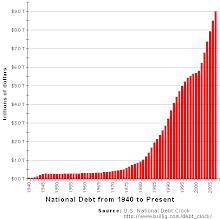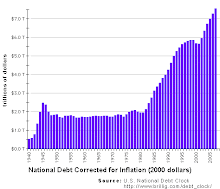Monday, March 3, 2008
The Economic Perspective on Incentives
Economists believe incentives always matter. An incentive is something that induces a particular behavior or action. Price changes are incentives because they usually alter consumer behavior. An increase in the price of a product normally causes people to buy less of it. If beef becomes a lot more expensive, for example, many people buy less beef and more of a substitute product, such as chicken or fish.
Not everyone believes in the power of incentives. In the 1970s, the price of gasoline quadrupled as a result of manipulations of the world oil market by the Organization of Petroleum Exporting Countries (OPEC). At the time, American consumers bought over 90 percent of their automobiles from the three major U.S. auto producers: Chrysler, Ford, and General Motors. Economists predicted the rapid increase in gasoline prices would cause consumers to want more fuel-efficient cars. The heads of the American automobile companies ignored the fact that incentives matter, however. Chrysler, Ford, and General Motors continued to manufacture large, gas-guzzling automobiles without providing consumers the option of an American-made fuel-efficient car. Japanese automobile producers, however, were eager to sell their compact, fuel-efficient cars to American consumers. Throughout the 1980s, Japanese car companies gained an increasing share of the U.S. automobile market. It is unlikely that American automobile companies will ever regain all of the shares of the automobile market they lost to foreign producers after oil prices increased dramatically in the 1970s. Japanese brands, such as Honda and Toyota, are firmly entrenched in the U.S. car market. This occurred because the highly educated business leaders of some of the largest American corporations ignored a basic economic principle. Incentives always matter.
If society uses appropriate incentives, then people’s behavior can be altered. Economists use incentives when designing social policies. If society wants more of something, it should subsidize it. If society wants less of something, then it should tax it.
A subsidy is monetary assistance from the government to promote an activity deemed advantageous to the public. For example, the government subsidizes lunches in public schools. Public school cafeterias provide nutritious meals to students at low or no cost. This is because society believes it is beneficial for all students to have access to a balanced diet, at least on school days, even if families have difficulty affording it.
A tax is a charge (usually of money) imposed by the government on people or property. For example, in cases where the government can measure pollution emissions, it sometimes charges a pollution tax. Companies that generate more pollution pay more in pollution taxes than those that pollute less. This creates an incentive for businesses to find methods of operation that are cleaner for the environment.
Other examples of taxes used to alter social behavior are the excise taxes on cigarettes and alcohol. These are called sin taxes because they are designed to discourage the consumption of these “sinful” products. An excise tax is levied on a particular product. Other products that are typically subjected to excise taxes are fuel, hotel rooms, cable television, and telephone service.
Subsidies and taxes are important components of social policy.
Not everyone believes in the power of incentives. In the 1970s, the price of gasoline quadrupled as a result of manipulations of the world oil market by the Organization of Petroleum Exporting Countries (OPEC). At the time, American consumers bought over 90 percent of their automobiles from the three major U.S. auto producers: Chrysler, Ford, and General Motors. Economists predicted the rapid increase in gasoline prices would cause consumers to want more fuel-efficient cars. The heads of the American automobile companies ignored the fact that incentives matter, however. Chrysler, Ford, and General Motors continued to manufacture large, gas-guzzling automobiles without providing consumers the option of an American-made fuel-efficient car. Japanese automobile producers, however, were eager to sell their compact, fuel-efficient cars to American consumers. Throughout the 1980s, Japanese car companies gained an increasing share of the U.S. automobile market. It is unlikely that American automobile companies will ever regain all of the shares of the automobile market they lost to foreign producers after oil prices increased dramatically in the 1970s. Japanese brands, such as Honda and Toyota, are firmly entrenched in the U.S. car market. This occurred because the highly educated business leaders of some of the largest American corporations ignored a basic economic principle. Incentives always matter.
If society uses appropriate incentives, then people’s behavior can be altered. Economists use incentives when designing social policies. If society wants more of something, it should subsidize it. If society wants less of something, then it should tax it.
A subsidy is monetary assistance from the government to promote an activity deemed advantageous to the public. For example, the government subsidizes lunches in public schools. Public school cafeterias provide nutritious meals to students at low or no cost. This is because society believes it is beneficial for all students to have access to a balanced diet, at least on school days, even if families have difficulty affording it.
A tax is a charge (usually of money) imposed by the government on people or property. For example, in cases where the government can measure pollution emissions, it sometimes charges a pollution tax. Companies that generate more pollution pay more in pollution taxes than those that pollute less. This creates an incentive for businesses to find methods of operation that are cleaner for the environment.
Other examples of taxes used to alter social behavior are the excise taxes on cigarettes and alcohol. These are called sin taxes because they are designed to discourage the consumption of these “sinful” products. An excise tax is levied on a particular product. Other products that are typically subjected to excise taxes are fuel, hotel rooms, cable television, and telephone service.
Subsidies and taxes are important components of social policy.
Subscribe to:
Post Comments (Atom)






No comments:
Post a Comment